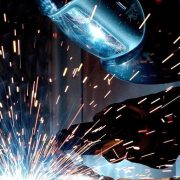Millwrights are precision craftsmen who install, upgrade, maintain, diagnose, and repair industries’ most complex and intricate machinery to ensure they operate in perfect working order.
 Millwright professionals are expertly trained and engaged with the construction,
Millwright professionals are expertly trained and engaged with the construction,
installation and maintenance of complex machinery, containing moving, interconnected parts.
All Millwrights use a wide variety of hand and power tools, and they must be able to maintain their tools in good, safe working order.
Working Conditions
Millwrights occasionally work with or around other construction tradesmen. They work
indoors and outdoors and often in tight places. All Millwrights have to do considerable
climbing, lifting, and carrying to perform their work. They must also be able to do a great deal
of reaching, balancing, kneeling, crawling, and turning.
Aptitude and Interest
Qualified Millwrights have a working knowledge of moving interconnected parts, including
drive shafts, bearing, gearing, conveyors, gas, nuclear and steam turbines. They must often
combine the skills of many trades in order to fabricate or assemble industrial machinery,
install equipment within thousandths of an inch, and later diagnose and maintain the
machinery.
Training
To become a skilled Millwright training is essential and can be acquired by:
Recommended high school courses include algebra, general science, mechanical drawing,
English, blueprint reading, welding, and general shop.
**Wage and compensation information based on CT Department of Labor data reported as of July 1, 2024.
***Apprentices are paid on a graduated scale as their skill and experience increases.
